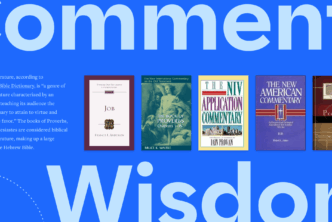Reading the Bible regularly can be hard. Sometimes it can feel like it takes too much work to understand what Scripture is really saying. And the last thing you want is for your Bible reading to become stale, or to feel forced.
If Bible study matters to you but you’re struggling to keep going, try some of these techniques.
Here are 15 ways to read the Bible with fresh eyes:
1. Respond
Read and deliberately respond in honest prayer to the Lord about a passage.
2. Reread a passage
Years ago, a friend reread Ephesians every day for a month, and he still remembers the experience.
3. Restate it
Try expressing the passage in your own words. As you do so, you’ll see if you’ve really understood it. I started to write 1 Thessalonians 2 in my own words and have ended up writing an extended translation of the whole New Testament!
4. Remove everything else
Study the passage with no commentary or study Bible.
5. Use tools
Study the passage with every commentary and study Bible you have and draw some conclusions amidst the varying interpretations. In particular, consult a commentary or study Bible that has a different perspective from your own and allow the thoughts to sharpen your own.
6. Start fresh
Imagine you’re reading the text for the first time.
7. Ask questions
Ask, “What one thing is the Lord clearly saying to you today to do or not to do?”
8. Notice details
Look at the little words like “all” and “therefore.” This happened to me this week: “The fruit of the light consists in all goodness, righteousness and truth” (Ephesians 5:9). I’d never noticed that before. I concluded that “all” means “every kind of.”
9. Keep it simple
The book of Proverbs has 31 chapters: take the day of the month and read the chapter of that day. So if it’s July 20, read Proverbs chapter 20.
10. Look at the footnotes
Read a passage, checking out every cross-reference shown in your study Bible.
11. Summarize
Sum up the passage in three words.
12. Try an audio Bible
Listen to the passage being read out on your phone or Kindle.
13. Recall what you know
See if you can recall what each chapter of the Bible is about.
14. Test yourself
If you think you know your Bible, try and see if you can recall one verse from each book of the Bible.
15. Test yourself even more
If you can recall a verse from every book of the Bible, try to recall one verse from each chapter of the Bible.
Bonus: talk about it with others
If you want help reading the Bible, follow me on Faithlife, and let’s chat. I’ll be sharing about my latest work and looking at how language affects our understanding of Scripture.
Martin H. Manser is a professional reference-book editor. Since 1980 he has compiled or edited over 200 reference books in the areas of English language and Bible reference, including Dictionary of Bible Themes. Macmillan Publishers has called him “one of Britain’s leading lexicographers.”





